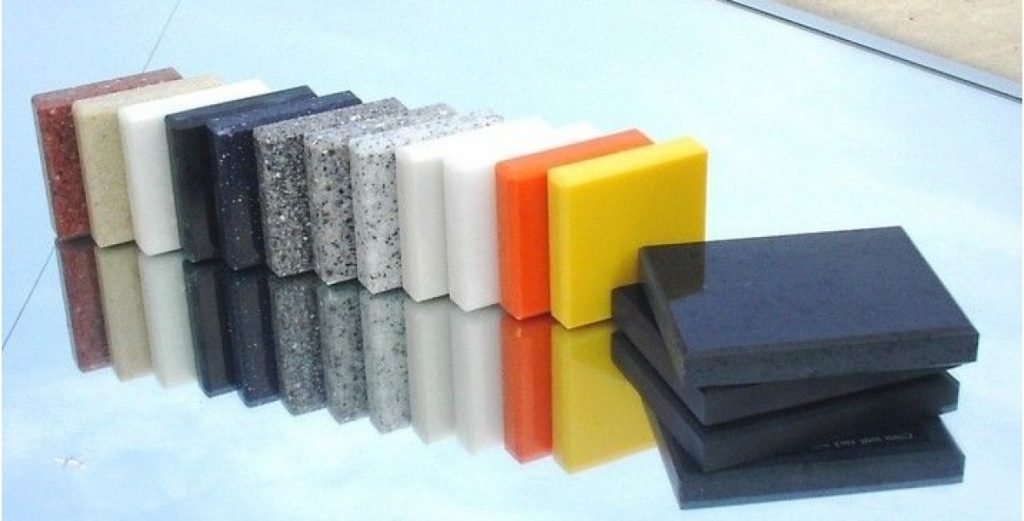Why Acrylic Solid Surface is Better Than Quartz, Granite, and Natural Stone
Learn why Kstone’s 100% acrylic solid surface is the smart choice for your next surface installation project.
1. 🔄 Formability & Design Flexibility
Acrylic Solid Surface: Easily thermoformed into seamless curves, integrated sinks, and custom 3D shapes—ideal for creative, ergonomic designs in any environment.
Quartz, Natural Stone, Granite: Rigid and difficult to customize; cannot achieve curved or seamless designs easily.
2. 🔧 Repairability
Acrylic Solid Surface: Easily repaired on-site through sanding and buffing—restores original appearance.
Quartz & Natural Stone: Repairs are difficult or costly; cracks and chips often require replacement.
3. ☢️ Non-Radioactivity & Environmental Safety
Acrylic Solid Surface: Non-toxic, radon-free, and safe for medical, residential, and educational use.
Granite & Natural Stone: May emit low levels of radon, impacting indoor air quality.
4. 🚫 Non-Porosity & Hygiene
Acrylic Solid Surface: Non-porous and easy to clean—perfect for hospitals, kitchens, and bathrooms.
Natural Stone: Porous and requires sealing to maintain hygiene and resist stains.
5. 🔗 Seamless Jointing
Acrylic Solid Surface: Sheets can be fused into seamless surfaces for better aesthetics and cleanliness.
Quartz & Granite: Seams are visible and can trap dirt and bacteria.
6. 🔥 Heat & Impact Resistance
Acrylic Solid Surface: Good resistance to daily wear and moderate heat (use trivets for hot pots).
Quartz & Granite: High heat resistance but vulnerable to thermal shock.
7. 🌍 Sustainability & Eco-Friendliness
Kstone: Produces recyclable, low-emission acrylic surfaces with minimal environmental impact.
✅ Summary Comparison Table
| Feature | Acrylic Solid Surface | Quartz | Granite/Natural Stone |
|---|---|---|---|
| Thermoformable Design | ✅ Yes | ❌ No | ❌ No |
| Easy to Repair | ✅ Yes | ⚠️ Difficult | ⚠️ Limited |
| Seamless Joints | ✅ Yes | ❌ No | ❌ No |
| Non-Porous | ✅ Yes | ✅ Yes | ❌ No |
| Radon-Free | ✅ Yes | ✅ Yes | ❌ Some Emit Radon |
| Custom Shapes | ✅ Easily Molded | ❌ Rigid | ❌ Rigid |
| Hygiene | ✅ Medical Grade | ✅ | ❌ Needs Sealing |
Choose Kstone Acrylic Solid Surface
For countertops, vanities, hospital surfaces, and retail design, Kstone offers unmatched durability, hygiene, and design freedom.
🔗 Visit www.kstonesurfaces.com to explore our full range and request a quote.




